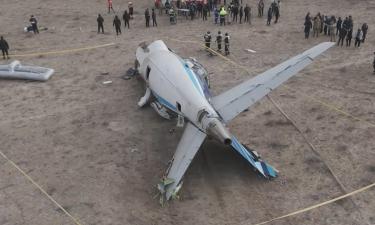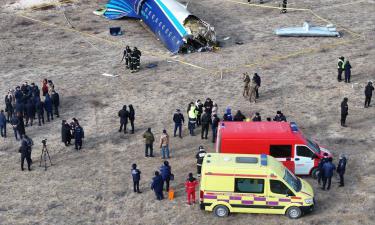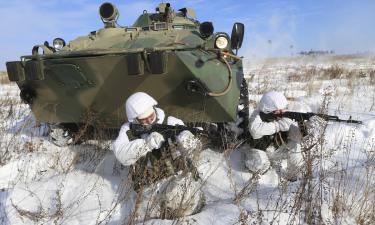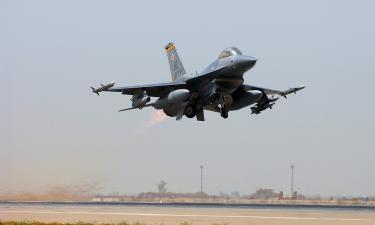Floods strand thousands of Pakistanis on rooftops, in trees
Thousands of people were stranded on rooftops and tree branches Wednesday as cyclone-spawned floods surged through towns and villages of Pakistan's coastline, officials said.
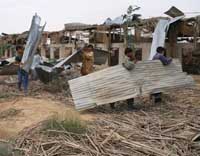
Off the coast in the storm-tossed Arabian Sea, navy warships and helicopters continued to search for missing vessels, having rescued about 125 crewmen from floundering craft, said navy and Maritime Security Agency spokesmen.
Helicopters and speed boats were also in demand to help hundreds of people on five isolated islands lying some 150 kilometers (93 miles) southeast of Karachi, said Sami Memon, president of the Fisherfolk Forum, a fishermen's welfare body.
In Karachi, the country's largest city, five people were electrocuted Tuesday by falling electricity lines that had earlier been battered by rains and thunderstorms, according to official reports.
Cyclone Yemyin struck the coastline of Baluchistan province Tuesday, killing at least 12 people, including four children, said Raziq Bugti, spokesman for the provincial government. Others were believed lost at sea, but no estimates were available.
"More than 100 villages have been badly affected by flooding," Bugti said. "We have asked the navy and the army to send helicopters to bring them to safety."
In the Baluchistan city of Turbat and surrounding villages, as many as 10,000 people were driven from their homes by rising waters from the Kech River and a nearby dam, said Mayor Abdul Rauf Riand.
The mayor of the city said he has requested urgent aid for residents who escaped the flooding by climbing on the roofs of concrete houses and mosques as well as treetops. Turbat has a population of 150,000.
The aid would have to be ferried in by helicopter because roads in the area had been severed and bridges destroyed, he said.
Located to the east on the same Arabian Sea coastline, Karachi suffered torrential rains and thunderstorms, which killed at least 228 people Saturday. City authorities continued to grapple with electricity shortages caused by power lines that were snapped by falling trees, pylons and billboards.
In Baluchistan, floods washed away some bridges and part of the main coastal highway, causing lengthy traffic delays. Hundreds of villagers clutching possessions filed past the vehicles in the opposite direction.
In the hills, spillways were opened to release the water pressure on two dangerously full dams, Bugti said.
Relief efforts were hampered with roads and telephone lines severed in nine districts of the province.
Before the cyclone hit land, warnings of coastal flooding prompted many to flee in panic.
Most of the 120,000 residents of the southwestern port city of Gwadar moved to higher ground, Mayor Abdul Ghaffar Hoth said.
People from several smaller towns nearby loaded possessions onto camels or into cars and headed for the hills, he said.
On the high seas, the navy rescued fishermen from small craft, as well as crew members of a freighter and other stricken vessels.
In the latest rescue Wednesday, three helicopters airlifted 25 fishermen from two capsized boats, said Lt. Mohammed Shahzad, spokesman of the Maritime Security Agency.
He said the search and rescue operation was focused on missing fishermen who went out days before the storm to fish in deep waters.
Subscribe to Pravda.Ru Telegram channel, Facebook, RSS!
